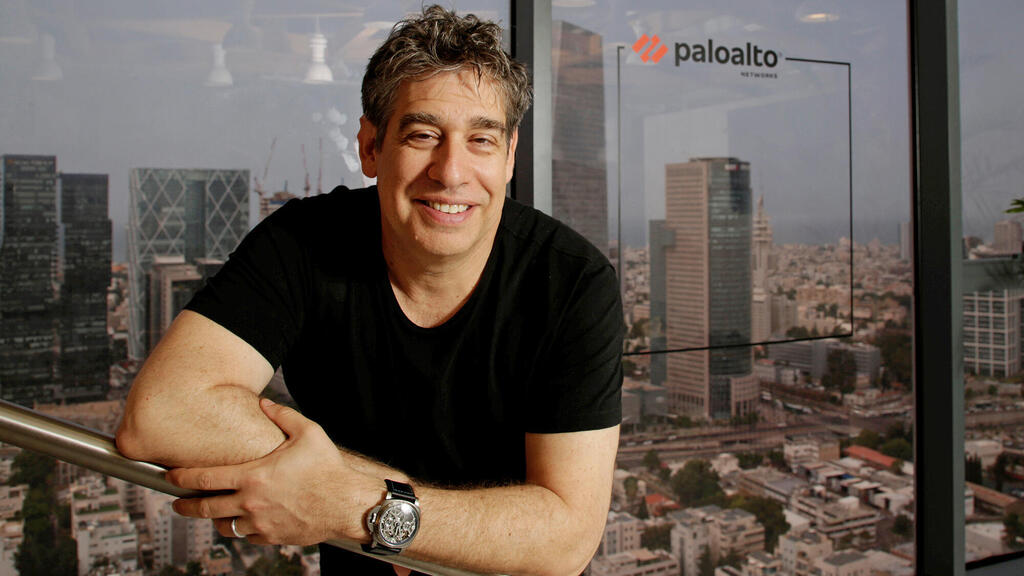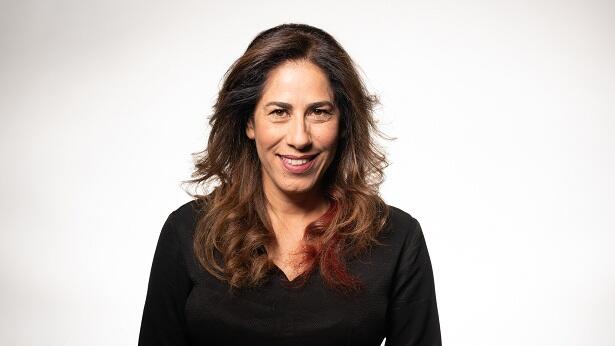Many in Tel Aviv smiled after the Wall Street Journal reported that Google was in advanced negotiations to acquire Israeli cloud security company Wiz for $23 billion. Indeed, this is excellent news for all Israelis who will benefit from the taxes paid by the company’s founders and employees should the deal be signed.
Some Israelis, however, will profit more, with some surprisingly being Wiz’s fierce competitors. The list of secret beneficiaries from the Wiz-Google deal illustrates just how tight-knit the Israeli cybersecurity community is.
According to data published on Wednesday by Startup Nation Central (SNC) and obtained by Calcalist, Israel surpassed the U.S. in attracting investments to cyber companies even before the deal was signed.
Cybersecurity companies accounted for 20% of the total capital raised in both Israel and the U.S. in 2018. However, in the U.S., the sector's share decreased to 13% over time, while Israel saw a steady rise. In the first half of 2024, cybersecurity investments accounted for half of all capital raised in the Israeli ecosystem. So, who are the Israeli beneficiaries of the upcoming deal?
The biggest benefactors of Wiz's Google deal
1. Nir Zuk
The most surprising name is Nir Zuk, founder of Palo Alto, the largest cybersecurity company today, traded at $110 billion on Wall Street. Zuk is a minority investor (LP) in Gili Raanan's Cyberstarts venture capital fund, which was among the first investors in Wiz.
According to unofficial data, Cyberstarts holds 4% of WIZ's shares, which will be worth $900 million after having sold half of its holding to Blackstone in 2021. Ironically, Palo Alto is one of Wiz’s main rivals, and part of the reason it's being sold is due to the tough competition against Zuk’s company.
Palo Alto has set the tone in the market thanks to its size and presence in all cyber fields except identity management. Recently, it decided to offer some products for free and push for consolidation in the cybersecurity market.
Wiz finds it difficult to fight alone against Palo Alto, which can offer its version of the cloud security system almost for free while profiting from other products. Wiz also tried to build a broader platform, mimicking Palo Alto's acquisition strategy, but is only at the beginning of this path, having failed to acquire Israeli SentinelOne or American Lacework.
Zuk, who certainly doesn’t need the exit deal to become wealthy, will benefit twice – personally through his investments in Cyberstarts and by eliminating a strong competitor — as Google will integrate WIZ’s solution as part of its cloud offering, not competing directly with Palo Alto.
Additionally, WIZ will stop “harassing” Zuk with rapidly changing valuations, much like he did in the past to Gil Shwed, his former boss at Check Point Software, which now lags behind with a market value worth $19 billion.
2. Shlomo Kramer
Shlomo Kramer is also one of the earliest players in the Israeli cybersecurity market who, together with Shwed and Marius Nacht, founded Check Point Software, left it, and founded Imperva, which was also sold to Thales.
He continued with Cato Networks and recently competed head-to-head with Wiz over who will be the next big cybersecurity IPO on Wall Street. Kramer is also privately invested in Cyberstarts and is expected to benefit from a quick return on investment in the four-year-old company.
Unlike Zuk, Cato Networks doesn’t directly compete with WIZ, but for Kramer, the current exit also holds additional profit. Google’s deal will set a precedent in the cybersecurity market and could bring an attractive buyer for Cato Networks or allow it to achieve a higher valuation in its IPO, easing its completion.
The company’s latest funding round was at a valuation of $3 billion, so it’s likely its investors are aiming for a valuation of $5-6 billion in an upcoming IPO. The company’s revenue pace is lower than Wiz’s by about half.
3. Mickey Boodaei
Mickey Boodaei is one of the most successful entrepreneurs and investors in the cybersecurity world. He was among the founders of Trusteer Solutions, which was sold to IBM for over $600 million and Transmit Security, where he is now CEO and founder.
Boodaei is also considered a successful investor who has made most of his investments independently until now. Boodaei also invested in Gili Raanan's Cyberstarts, so the huge profit of the fund on Wiz will eventually reach Boodaei as well.
Interestingly, Boodaei and Rakesh Loonkar, both long-time partners and founders of Transmit Security, and Dan Amiga and Michael Fey, founders of the cybersecurity company Island, recently established a cybersecurity investment fund, Picture Capital, which will be a new and challenging competitor to Raanan’s fund.
The fund raised $120 million for investment in early-stage cybersecurity companies, with Boodaei and Amiga primarily as investors and Loonkar managing it after leaving Transmit.
4. Yevgeny Dibrov
Yevgeny Dibrov, co-founder and CEO of the cybersecurity company Armis Security is a friend of Assaf Rappaport from their IDF service together in the technological unit of the IDF Intelligence Directorate.
Rappaport was Dibrov’s team leader and later recruited him as one of the first employees at Adallom, the first company founded by Wiz’s founders, which was sold to Microsoft for $320 million five years ago.
Dibrov will profit from the exit twice: he invested in Wiz both directly in one of the funding rounds and through Cyberstarts. Rappaport also invested in Armis personally from its early stage and still holds shares in it after it was valued at $3.4 billion in the latest funding round.
5. Marius Nacht
Marius Nacht, the third part of the Check Point trio, has been distancing himself from the cybersecurity field in recent years and dedicating his personal fortune to life sciences and the digital bank he founded with Amnon Shashua, but left the venture before it launched. He established the aMoon venture capital fund specializing in medical ventures but still kept investing in Cyberstarts privately.
6. Merav Bahat
Founder and CEO of Dazz Merav Bahat is another beneficiary of the emerging deal. Bahat previously managed Microsoft's cybersecurity operations alongside Assaf Rappaport, Wiz’s CEO. Estimations suggest she invested in Wiz directly in its early days and is expected to register a profit of millions of dollars upon the completion of the deal.
7. Nadir Izrael and Michael Shaulov
Nadir Izrael and Michael Shaulov are other leading names from the cybersecurity community on the list of future beneficiaries from the Wiz deal and are part of Gili Raanan's investors clique.
Izrael is Dibrov's partner in founding Armis and is also invested in Raanan's fund. Izrael, who also served in the IDF’s Unit 8200, serves as the company's Chief Technology Officer. Michael Shaulov oversees Fireblocks, his own unicorn in the cybersecurity field, which was valued at $8 billion in the latest funding round.
8. Amichai Shulman
Amichai Shulman was one of the founders of the cybersecurity company Imperva alongside Shlomo Kramer. After the company's sale, Shulman stayed with the company for a short period and then continued to be an entrepreneur and investor, with one of his investments being in the Cyberstarts fund.
9. Omri Casspi
Omri Casspi, known as Israel's top basketball player and the first Israeli to play in the NBA, has been building a reputation in the high-tech investment world in recent years. One of his first steps was joining the investment in Raanan's fund.
Although Casspi now has his own venture capital fund called Sheva which raised $50 million and sometimes competes for investments in new cybersecurity companies, he will also benefit from the profit Cyberstarts will make on Wiz’s sale.
10. Ofer Ben-Noon
Entrepreneur Ofer Ben-Noon, who recently sold his company Talon to Palo Alto for $600 million, will benefit from the exit due to his investment in Gili Raanan's cybersecurity fund.








